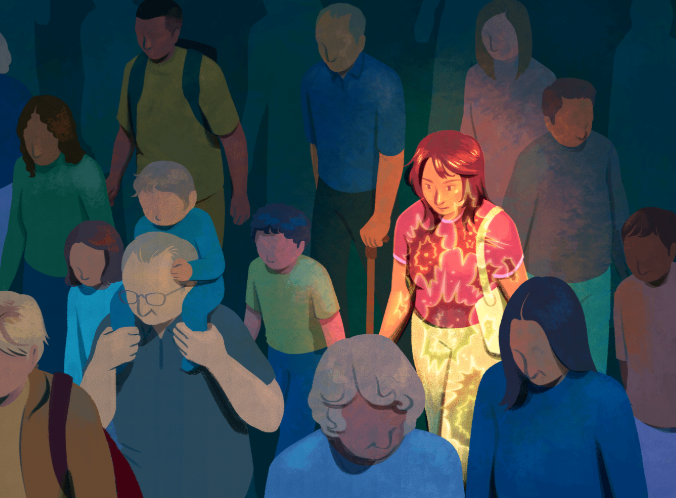Rising New Health Threat in Youth Amid Cancer Surge
In recent years, a concerning trend has emerged: an increase in health threats faced by the youth, particularly regarding the rising surge of cancer cases. This unsettling development demands our attention and immediate action to address the contributing factors and implement preventive measures to curb its growth. In this blog post, we will explore the various aspects of this pressing issue, identify the potential causes, and consider proactive steps we can take to protect future generations.
Understanding the Growing Health Concerns
The alarming increase in cancer cases among young people is a multifaceted problem rooted in several lifestyle and environmental factors. By gaining a comprehensive understanding of these issues, we can better equip ourselves to tackle them.
Increased Exposure to Carcinogens
One significant factor contributing to the rise in cancer cases is the increased exposure to carcinogens. Urbanization and industrialization have led to higher pollution levels, which translate into more carcinogenic substances in the air we breathe, the water we drink, and the food we consume. This exposure is particularly concerning for adolescents and young adults who are developing rapidly.
Key Points on Exposure to Carcinogens
- Air Pollution: The emission of harmful substances from vehicles and industrial activities poses a significant risk to young individuals.
- Dietary Habits: Processed foods and those high in preservatives and additives are increasingly common in young people’s diets. These can introduce harmful chemicals into the body.
- Household Products: Everyday products, such as certain types of plastics and cleaning agents, can contain chemicals linked to cancer.
Sedentary Lifestyle and Poor Dietary Choices
Our modern lifestyle has become progressively sedentary, with technological advancements leading to decreased physical activity. Coupled with poor dietary choices, this becomes a ticking time bomb for health.
Impact of Lifestyle on Health
A persistent lack of physical activity can lead to obesity, which is a known risk factor for certain types of cancer. Furthermore, a diet low in fruits, vegetables, and other essential nutrients can impair the body’s natural defenses against cancerous cells.
Beyond exercise and diet, excessive screen time and digital device usage have been linked to disrupted sleep patterns and mental health issues, which indirectly heighten the risk of developing serious illnesses, including cancer.
Exploring Social and Environmental Factors
While personal lifestyle choices play a crucial role, there are external forces beyond individual control that contribute to the rise in health threats among youth. Understanding these can help shape targeted public health strategies.
Environmental Inequality
Environmental issues disproportionately affect certain populations. Those in lower socioeconomic areas might not have access to clean air and water, high-quality foods, and safe recreational spaces. This inequality directly correlates with higher rates of health issues, including cancer.
Points to Consider
- Access to Resources: Communities with limited access to nutritious food options are more prone to health issues.
- Education and Awareness: A lack of education about health risks can lead to uninformed lifestyle choices.
- Healthcare Availability: Inequality in healthcare access impacts early detection and treatment of cancer, affecting outcomes for young people.
Psychological Stress and Mental Health
The modern youth faces unprecedented levels of stress, stemming from academic pressures, social dynamics, and the ever-present influence of social media. Psychological stress can weaken the immune system and has been associated with an increased risk of chronic health conditions, including cancer.
Strategies for Prevention and Intervention
To combat these emerging threats, a multifaceted approach is essential. Proactive measures from individuals, communities, and policymakers can pave the way for a healthier future.
Health Education and Awareness Programs
Knowledge is power. Creating educational initiatives that inform young individuals and their families about the risks and signs of cancer can significantly aid in early detection and prevention.
Key Educational Topics
- Understanding Carcinogens: Admissions on how to reduce exposure to everyday carcinogens in the environment.
- Promoting Healthy Lifestyles: Workshops and seminars on the importance of regular exercise and a balanced diet.
- Mental Health Resources: Providing access to mental health resources to help manage stress effectively.
Enhancing Healthcare Access
Efforts must be made to improve access to healthcare services for all, particularly in underserved communities. This includes not only medical facilities but also preventive services like regular check-ups and screenings.
Policy and Environmental Changes
Government and community leaders play a crucial role in enacting policies that protect young people from harmful exposures. Legislation aimed at reducing emissions, managing waste, and ensuring safe production standards in industries are foundational steps.
- Regulating Industries: Enforcing strict regulations on industries that release carcinogens into the environment.
- Urban Planning: Developing city landscapes that prioritize clean air, green spaces, and reduced congestion.
Final Thoughts
The rising new health threat in youth amid a surge in cancer cases is a wake-up call that underscores the urgent need for awareness, education, and proactive intervention. Collectively, we can halt this trend by fostering environments that promote healthier lifestyles and ensuring equitable access to healthcare resources. By prioritizing the health of our younger generations, we set the stage for a brighter, cancer-free future.









